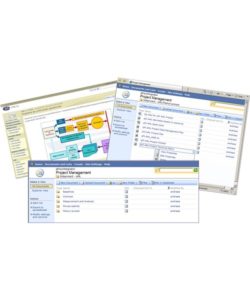“We are what we repeatedly do.
Excellence, then, is not an act, but a habit.”
Aristotle 384 BC-322 BC, Greek philosopher and scientist, student of Plato and teacher of Alexander the Great
From the very beginning quality has been a strategic objective of our company. The first step, obtaining an ISO 9001 certification has been an important step, leading to a new architecture of our process system and developing a successful collaborative platform, Esfera.
Around 2006 we have decided to adopt the CMMI model best practices for the project management, development, maintenance and services activities that cover the product life-cycle from conception through delivery, support and maintenance.
We have decided to merge the previous Quality Management System initiatives based on ISO 9001 with the current effort. The result has been a holistic view on quality of our products, services and processes which proved to be beneficial for all stakeholders.
On the road to a maturity level that hopefully will increase efficiency and predictability and thus, make us more competitive, we have decided that state-of-the art technologies would be a valuable companion.
It is well known that implementing CMMI practices in a small setting is quite a challenge.
Automation is a must as well as standardization. A dedicated managerial support, training and involvement of all people in the organization are vital.
From the very start we have decided upon the standardization of processes. Development projects are using the procedures established by Microsoft Framework for CMMI model and adapted to BIS particularities by BIS Process Group.
Extending the functionality of BIS collaborative software Esfera to support new practices has been another successful track. Not only Esfera proved a valuable support for the CMMI project together with Microsoft SharePoint services technology, but also generated a new business lead for BIS.
Securing a proper budget for the improvement project is essential as costs of improvement are anything but low. Therefore, without the full support of the company management, the improvement project could not have been even started.
Another factor in the successful implementation of practices till now has been the strong involvement of the people in organization who considered from the very beginning that this project is important for everyone. Most of the solutions and good improvement ideas came from the middle management. Most notable are related to creating our own innovative tools: for the synchronization of requirements word document with Team Foundation Server records, measurement automation, improvement monitoring, preparing Scampi evaluations, for creating a collaborative environment etc.
Appropriate training has involved consulting, courses and workshops both in CMMI Model and IT disciplines. Each iteration of the improvement process is bringing us a better knowledge of best practices of the industry and is getting us closer to the desired maturity level.
In 2009 our Product Development, Services Management and Process Improvement and Quality Departments have attained the Level 2 of the Capability Maturity Model® Integration (CMMI) V 1.2 from Carnegie Mellon University’s Software Engineering Institute.
The result of the appraisal, performed by a team of 5 specialists led by Mr. Marcelo Amadio, Lead Appraiser, is published on the SEI website The appraisal covered six process areas – Requirements Management, Project Planning, Project Monitoring and Control, Configuration Management, Measurement and Analysis and Product and Process Quality Assurance – including over 100 implemented practices.
At maturity level 2 the processes are planned and executed in accordance with the policy established by the top management. All projects employ skilled people who have adequate resources to produce controlled outputs. Commitments are established among relevant stakeholders and are revised as needed. All projects are monitored, controlled, and reviewed and are evaluated for adherence to their process descriptions.
The process discipline reflected by maturity level 2 helps to ensure that existing practices are retained during times of stress. When these practices are in place, projects are performed and managed according to their documented plans.
Nowadays
One of the first lessons we learned when we started CMMI Model implementation was that :
“non-formalized processes are abandoned in time of crisis, and people are unable to act according to these processes”.
Formalized processes implemented and managed mean one could deal better with an unstable business environment in which one may experience an increased vulnerability due to new competitors.
If processes are institutionalized and managed the company is able to perform at its best and thus avoid losing old customers due to poor services.
Nowadays, we have adopted a strategy of small steps, appropriate for the crisis environment in which we perform.
Think progress, not perfection and aim to slowly improve your practices and behaviors.
As an important step towards CMMI level 3, we have decided to improve our Verification and Validation processes. Besides appropriate training and certifications, we have a new project in place to embed in the products automated testing. All these will increase the quality of our product and increase customers trust.
By: Ioana Guiman










